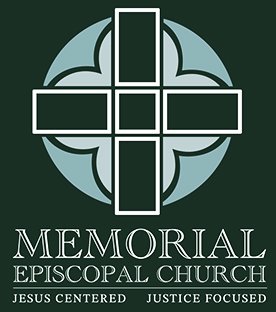The View From Bolton St.
Shining a Light on the Truth
“No one lights a lamp and hides it in a clay jar or puts it under a bed. Instead, they put it on a stand, so that those who come in can see the light. For there is nothing hidden that will not be disclosed, and nothing concealed that will not be known or brought out into the open. Therefore consider carefully how you listen. Whoever has will be given more; whoever does not have, even what they think they have will be taken from them.” Luke 8:16-18
We have seen, up close and personal this week, what happens when we hide things under a bushel basket. Jesus (as usual) is right! We rarely hide our light, but we are often more than willing to hide the things that we are embarrassed about, worried about, shocked about, under a bushel basket; or sweep them under the rug; or keep them under the klan hood. But just as Jesus says ‘ there is nothing hidden that will not be disclosed, and nothing concealed that will. Not be brought out into the open.’ So if you wonder why I think it is so important for us as a faith community to know our history, to understand our history, and to respond to our history - it is because of weeks like this. Because until our history is dealt with, until we fully recognize what we once were, and why we are the way we are; we will not have—nor deserve-- the trust, understanding and respect of our neighbors.
Why? Because in the 1920s when parishioners from St Katherine’s and St. James were advocating to end lynching in Maryland, our parishioners were working to keep the neighborhood segregated. And in the 1930’s when Black West Baltimore Churches were raising money to send Thurgood Marshall to law school, lawyers from Memorial and the Episcopal Diocese were working on a plan to keep all Baltimore neighborhoods segregated. When Marshall was arguing Brown v. Board before the Supreme Court in 1952, Memorial was working to keep a local youth center segregated. And while there might not be photos of it - Memorial members were putting on Black-Faced Minstrel shows for many years here at Memorial in what is now Farnham Hall. It’s not just that we have some ‘bad things in our past’ - but that it was done in direct opposition to what other Jesus loving Black Episcopalians were working towards here in the city. They were shining their light and we were working to put it out. This is a terrible history. And not one we can avoid talking about.
Instead of proclaiming the Gospel of Jesus, our history was one of white supremacy. Instead of proclaiming that Justice should rain down like water, we asked maintained status quo. Instead of seeking righteousness like a mighty stream, we have sought righteousness lite - a trickling brook that moves just enough to make us feel good about ourselves but never enough to challenge our current reality.
During the Vestry retreat last weekend, we discussed in great detail the impact of white supremacy in the Episcopal Church, in Baltimore, and at Memorial specifically. We discussed a need to have some larger conversations about the triptych in the front of the church, the plaques to the two founding rectors (who were also Slaveholders according to census records), and even about the name of the church. You will, I am sure, hear more conversations around this—and I hope that you will join in to learn more about the past. But I hope you will also hear about the efforts we are undertaking to ‘turn around’ and atone for the sins of the past while, and that you see yourself in that work. Crafting a better future that looks much more like the Kingdom of God.
Perhaps you, like Memorial, have your own past that needs to be addressed? Perhaps you are struggling with how to reconcile that today?
To be very clear, I do not want you to read this and be ashamed, or feel that you cannot share or recover from it. We are reminded on Ash Wednesday that we are all nothing more than ashes and dust. Just as it is my fervent belief that God will make a ‘good thing’ from Memorial’s ‘dust’, so to do I believe that God will do the same with your dust; with your failings, your weaknesses, and your mistakes... IF we are willing to shine a light brightly, acknowledge the evils of our past, and work to be and do better in the future. We do that as individuals—but moreso as a community. We can collectively make our community better

